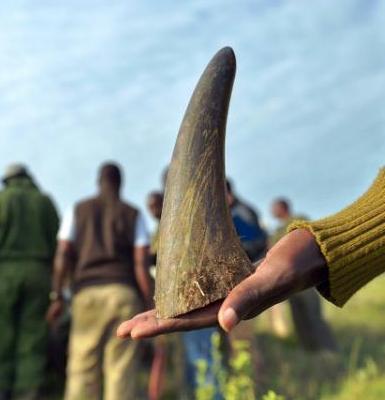Poaching fears grow as judge lifts domestic ban on sale of rhino horn
A judge lifted a ban on the domestic trade in rhino horn in South Africa on Thursday, alarming conservationists who say it will intensify the slaughter of the threatened species. Judge Francis Legodi said the South African government failed to consult properly before imposing the moratorium in 2009 and questioned its effectiveness, noting that rhino poaching surged to record levels after the ban. “What disastrous implications would be brought about by the immediate lifting of the moratorium? I cannot think of any,” Legodi said in a 39-page ruling in the North Gauteng High Court in Pretoria. But conservationist Jason Bell warned: “The rhino population will disappear in two to three years if the Chinese consumption continues at the rate that it is today.”
South Africa does not have a market for rhino horn domestically and the opening of trade locally will only lead to the smuggling of rhino horn by criminal syndicates into the black market in Vietnam and China
Anti-poaching campaigner Allison Thomson
Rhinos are slaughtered by poachers for their horn, which is used as a traditional medicine in east Asia. John Hume and Johan Kruger, the two game breeders who launched the legal action, say it is their constitutional right to sell rhino horn which they say is a renewable resource. Hume has four tonnes of horn sitting in storage that he wants to sell. “Lifting the ban is an extremely dangerous move,” said Mr Bell, director of International Fund for Animal Welfare in South Africa. "It is setting an unnecessary precedent by allowing domestic trading of horns even though the horns won’t be allowed to leave the country.“ The court decision came ahead of a meeting in Johannesburg next year of the Convention on International Trade in Endangered Species of Wild Fauna and Flora, which could lift the global ban on rhino horn sales.
(Hume) hopes that a legalised trade will lead to a reduction in poaching
Lawyer for rhino breeder John Hume

Africa rhino horn